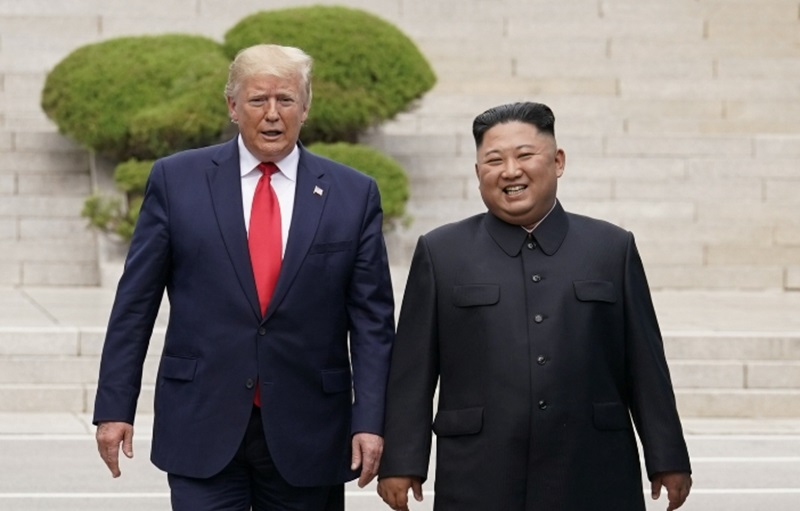As of Thursday morning, North Korean media outlets Rodong Sinmun and Korean Central News Agency (KCNA) had no mention of the Nov. 5 U.S. election outcome.
“We won’t prejudge but will monitor the situation closely, as North Korea has a history of delaying reporting on U.S. election results,” a South Korean Unification Ministry official told reporters Thursday.
Following U.S. President Joe Biden’s 2020 victory, Pyongyang waited until Jan. 23 — over two months after the election and just days after Biden’s inauguration — to acknowledge the result. In 2016, North Korean media took 11 days to report on Trump’s election, mentioning it briefly while criticizing then-South Korean President Park Geun-hye’s congratulatory message to Trump as “pro-U.S. subservience.”

Analysts see Pyongyang’s caution as a reflection of uncertainty regarding the incoming Trump administration’s stance, with the inclusion of prominent hawks among Trump’s foreign policy picks.
Secretary of State nominee Marco Rubio, who Trump tapped on Wednesday, is known for his critical stance on North Korea. He previously labeled Kim as “mentally unstable” and a “lunatic.” Following the 2019 U.S.-North Korea summit period, Rubio further called Kim “a young dictator who has to figure out how to hold onto power” and said, “I don’t believe he will ever [give up his weapons].”
Similarly, Mike Waltz, Trump’s choice for National Security Adviser, has strongly advocated sanctions, calling for secondary sanctions against Chinese and Russian energy companies who support North Korea. In a June interview, Waltz described North Korea-Russia military ties as an “unholy evil alliance” and urged global consensus on isolating North Korea.
Although Trump emphasized his rapport with North Korean leader Kim Jong-un during his campaign, Pyongyang may be weighing its response to the election in light of both personal ties between the leaders and the failed Hanoi summit, according to a source close to the situation. During Trump’s first term, Kim and Trump met three times, including a high-profile summit in Panmunjom, but the 2019 Hanoi summit ended without an agreement on North Korea’s nuclear program.
In addition, North Korea’s nuclear issue may be considered a lower priority given other pressing foreign policy issues, such as the conflicts in Ukraine and the Middle East.
The source added that North Korea’s immediate focus is likely on its own relations with Russia, following the recent deployment of North Korean troops to support Russian forces in Ukraine. South Korea’s National Intelligence Service confirmed Wednesday that North Korean troops stationed in Russia had moved to the Kursk region, engaging in combat alongside Russian forces.
Some experts are concerned about the potential for faster reciprocal support from Moscow to Pyongyang, as the two may try to take advantage of the transitional period in the U.S. administration to intensify their activities in Ukraine.
North Korea needs to “solidify the impact of troop deployment before any shifts in U.S. policy on Ukraine occur under Trump,” said Hong Min, a senior researcher at the Korea Institute for National Unification. “For Russia, it needs to take back the Kursk region and secure consistent support from North Korean forces before any negotiation phase begins after Trump takes office.”
BY SEO JI-EUN [seo.jieun1@joongang.co.kr]





